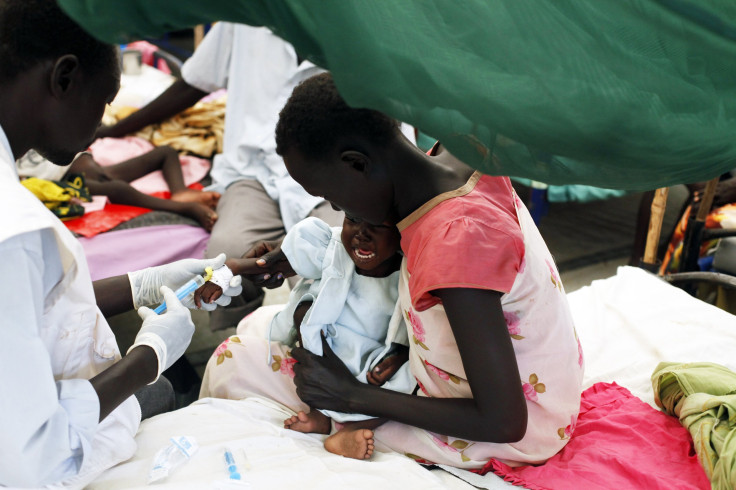South Sudan Faces Hunger, Malnutrition And Unending Conflict

South Sudan, the world’s youngest nation, is on the verge of a “humanitarian catastrophe,” warned Edmond Mullet, the United Nations Assistant Secretary-General for peacekeeping operations.
Briefing the U.N. Security Council on Wednesday, Mullet said that an impending famine in the conflict-ridden country has put nearly four million people at risk of hunger and starvation. He added that up to 50,000 children could die from acute malnutrition in the next few months.
“This is a man-made crisis, and those responsible for it have been slow in resolving it,” Mullet said, adding that both sides in the conflict -- the South Sudanese government and the Sudanese People’s Liberation Movement in Opposition -- have refused to draw down their military operations and “the situation on the ground remained precarious.”
Mullet said that the U.N. Mission in South Sudan, which is now the biggest aid operation in any single country, is burdened beyond capacity.
Nearly 10,000 people have died and more than 1.5 million South Sudanese civilians have reportedly been internally displaced since last December as a result of the protracted conflict, even as the country braces itself to face what the U.N. termed a “catastrophic food insecurity” that is now the “worst in the world.”
Months of fighting have also prevented farmers from planting or harvesting crops, causing a chronic, nationwide food shortage.
Fighting broke out in South Sudan in December 2013 when President Salva Kiir accused former Vice President Riek Machar of plotting a coup to overthrow the government. The ensuing political infighting later intensified into a full-fledged civil war between the rebel army, led by Machar, and government forces.
Attempts at negotiating a truce between the rebels and the South Sudanese government have stalled following sporadic incidents of violence triggered by the rebels and government forces. In the most recent instance of cease-fire violation since May, fighting between the two sides resumed on July 20 for control of the town of Nasir, about 300 miles north of the capital city of Juba.
The violence in South Sudan has also damaged its fledgling, oil-dependent economy -- 95 percent of the country's revenues come from oil exports -- which relies on the output of gas fields in the conflict-mired states of the Unity and Upper Nile regions.
© Copyright IBTimes 2024. All rights reserved.






















